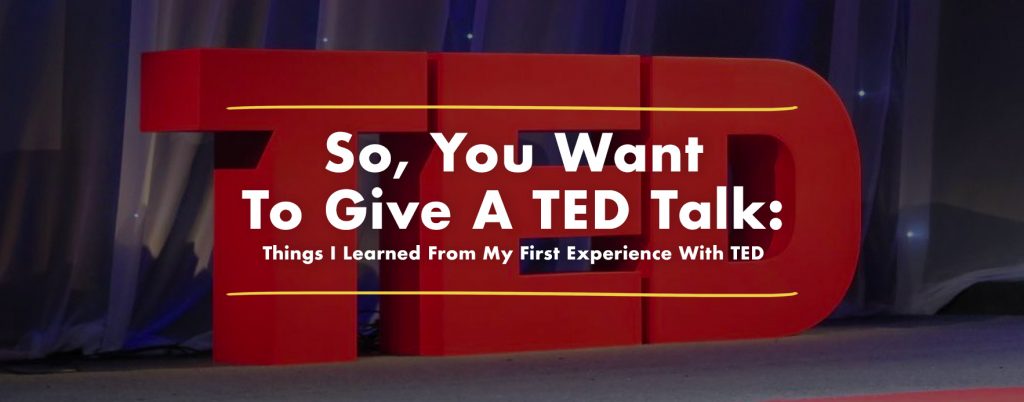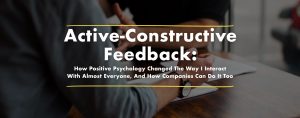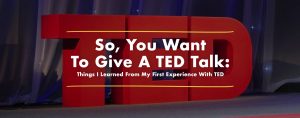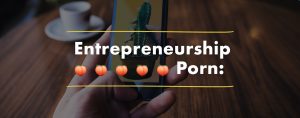By now, a lot of you probably know that I’ve given my first-ever TED Talk, and hopefully, most of you have already seen it! (If you haven’t, you can check it out here). At the time of my writing this post, there are over 3,200 TED Talks out there, and chances are you’ve watched a few, if not many, of these bite-sized presentations by well-known speakers on some of your favorite topics.
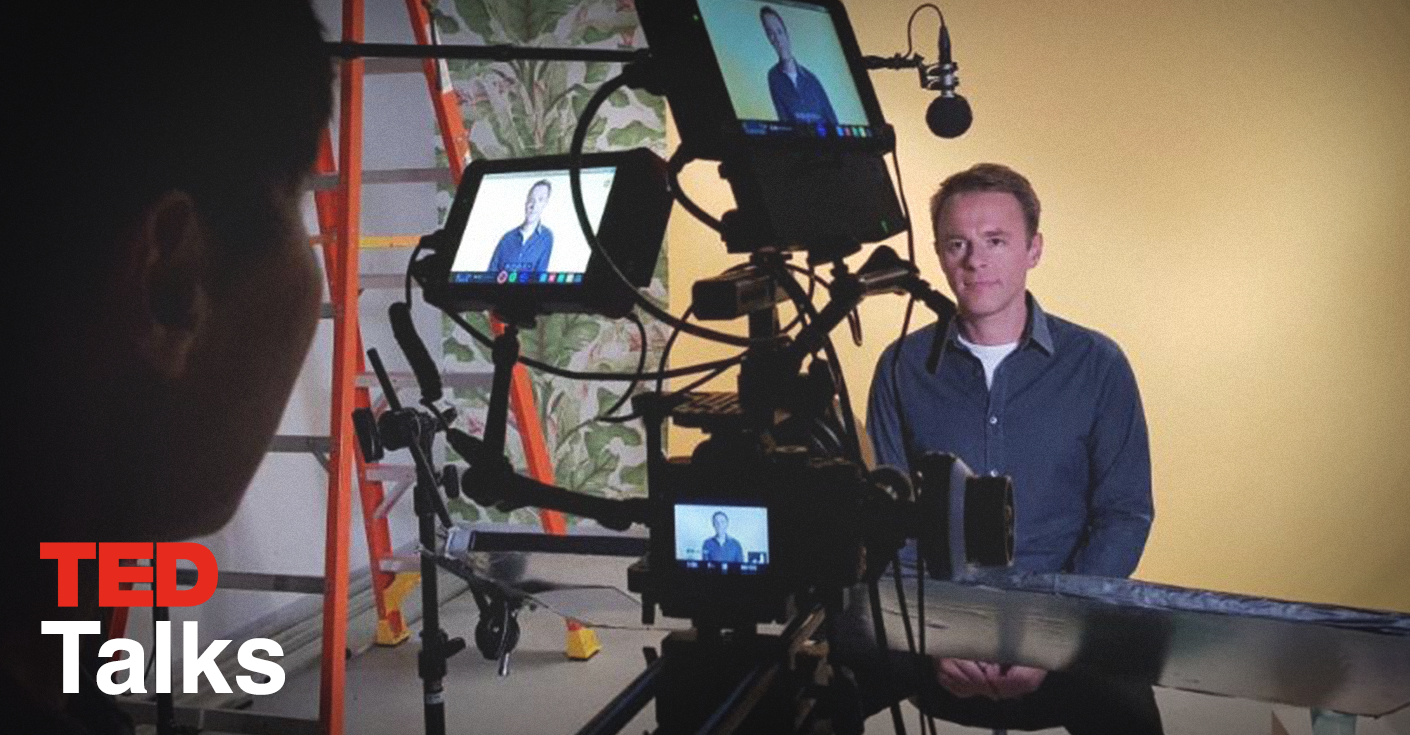
There’s a lot of mystique behind TED Talks. Giving one is seen as highly prestigious, a sign that you’ve “arrived” as a credentialed expert or thought leader in your topic of choice. Plus, when you’re part of the TED community, you get to plug into a network comprised of some of the smartest, most well-informed people on the planet. It doesn’t hurt that some of the most iconic Talks generate millions of views by people all over the world.
As I began the journey towards my own TED Talk, I realized that as excited as people are about them, there’s a lot of mystery surrounding the process around them. As an outsider, I didn’t know much about the process, either. That’s why I wanted to share my own experience with you. If you’ve ever aspired to do a talk or you’re just curious how it works, hopefully I can shed some light on how it all works, at least from my perspective.
I’ve wanted to give a TED Talk for years, and I can tell you honestly that I experienced great consternation and FOMO as a result. If I had a nickel for everyone someone said to me
“You should do a TED talk!” or “What, don’t you have a TED talk?” I could probably fund a business class ticket to Beijing and escape that nagging question.
Given my undeniable FOMO, I’ve even done some research in the past and thought about trying to participate in a TEDx event. TED and TEDx are created by the same organization, of course, but TEDx is organized by local and regional communities. Just like with TED, TEDx events have a committee that considers the many applications from speakers, the decision-making process is highly democratic, and the emphasis is on creating a diverse range of offerings from the many different TEDx organizations.
While I was tempted to try to make that happen, I also did my research and talked to friends who had done TEDx talks or who were part of the TED community. They explained to me that while TEDx is a great way to get my ideas out there, it’s a bit harder to break out of the pack, given the sheer numbers that are produced each year. Moreover, if I was committed to doing a TED talk (rather than a TEDx), I should be patient. After all, you only ever get one “first” TED talk. As much FOMO as I felt, I decided to hold out for TED.
So I waited. And I waited. One year, two years, three years...and then something happened. And it happened in a most unexpected place.
I participate in an organization called The Leadership Now Project, a political action organization founded by business professionals which seeks to enact fundamental reforms to strengthen American democracy. You might remember my FOMO Sapiens episode featuring fellow Leadership Now Project member Vicky Hausman and Leadership Now Project founder Daniella Ballou-Ares, talking about different aspects of democracy reform.
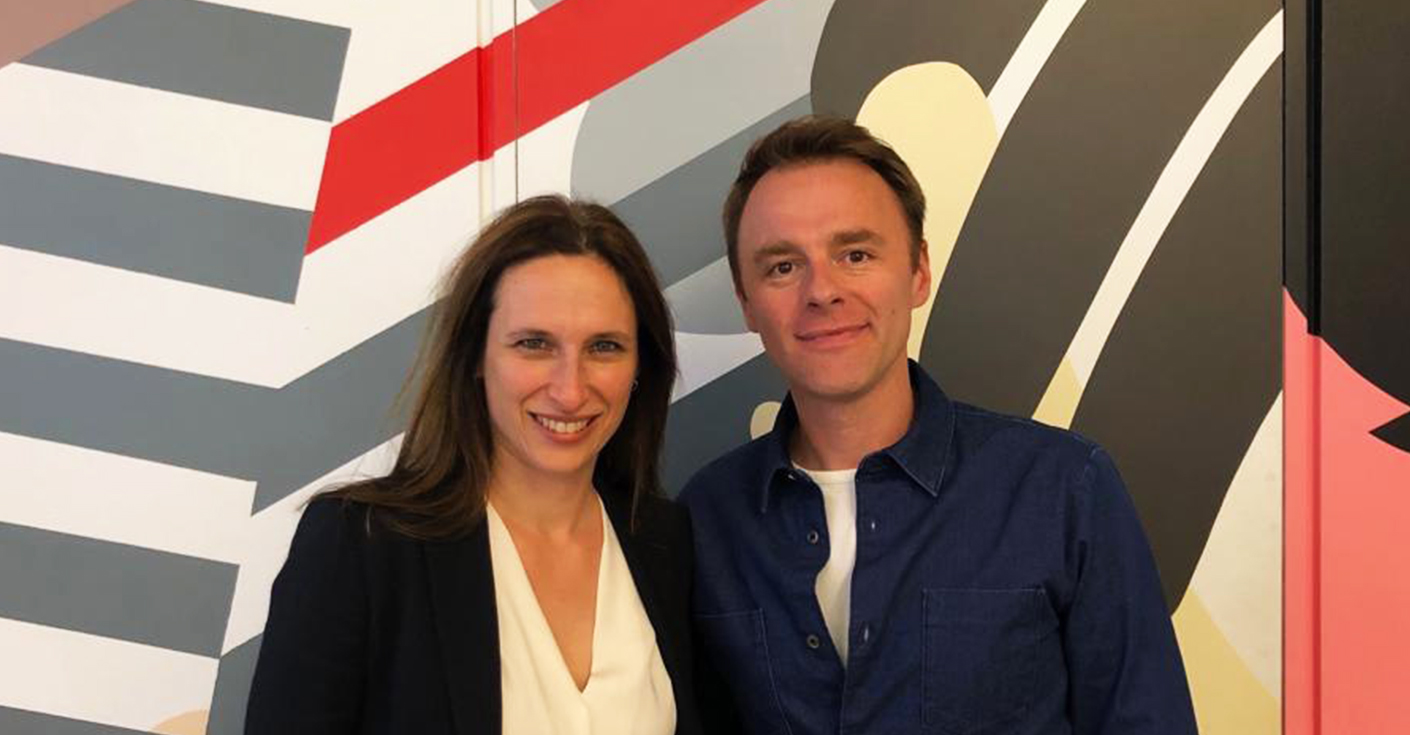
One day, a Leadership Now Project member who works at TED reached out to ask a favor. She wanted to connect with someone in my network who she thought might be a great potential speaker. I was happy to make the introduction, and also took advantage of our conversation to ask her if she might brainstorm with me on topics for a talk of my own one day. We met for coffee a few weeks later and I pitched her a few ideas. It was an extremely valuable experience: she asked thoughtful, hard questions about what I wanted to accomplish with my speech, and helped me focus my thoughts and my message. She provided me with some written feedback and told me that she’d keep me in mind.
That was December of 2018. I largely forgot about TED and focused on other things until one day - BOOM - my inbox blew up. I received an email about an upcoming TED series about the future of work. Would I be willing to take part in the series?
While I always imagined that kind of moment would bring me unbridled joy, panic immediately set in. First, I had never done this before. I’ve given plenty of speeches and presentations, but they’ve always been on my own terms, with my own improvisations for the audience before me. Second, I was just about to depart on a trip to Central Asia, where I’d be effectively off the grid for days at a time for around 3 weeks and unable to do any meaningful preparation. I took a walk around the block and decided there was no point in stressing. I would simply make it work. I’d use the internet when I had it and crunch as much as I had to in the meantime.

